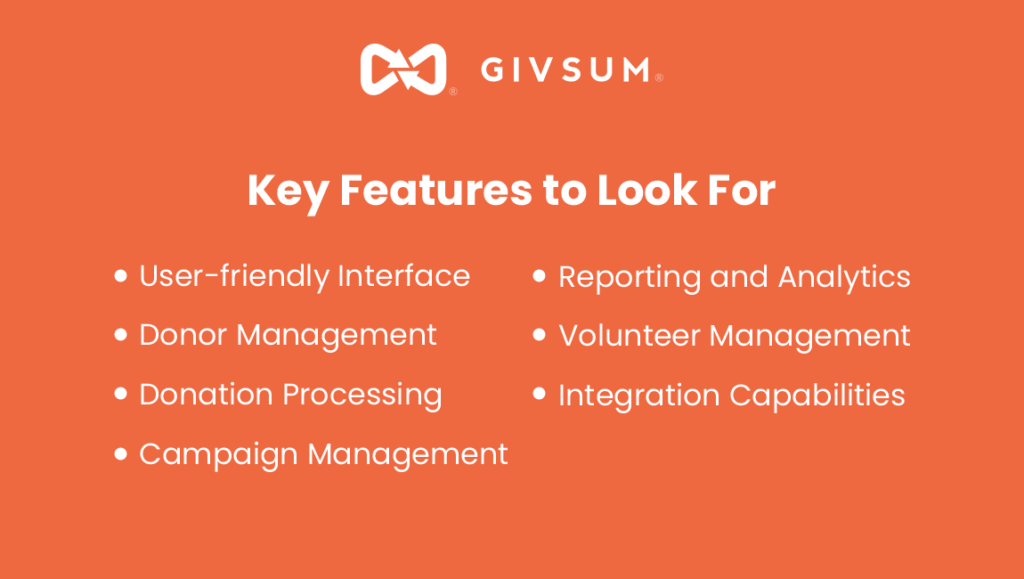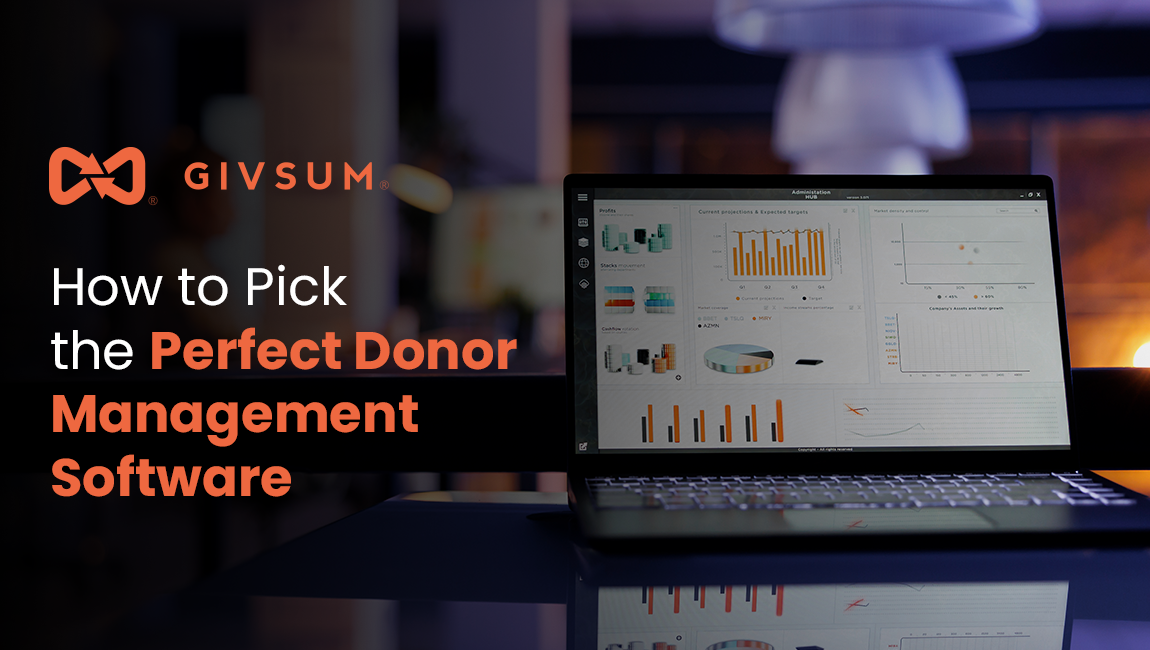Choosing the right donor management software can feel like a big task, especially with so many options out there. But don’t worry—we’re here to make it easier for you! Let’s break down what you need to consider when picking the best software to boost your fundraising efforts and keep your supporters happy.
What’s Donor Management Software, Anyway?
In simple terms, donor management software helps you keep track of your relationships with donors. It organizes all that important donor data, spots trends, and makes it easier to secure future donations. This is especially useful for small nonprofits that might not have tons of resources or staff.
Imagine you’re running a small nonprofit focused on environmental conservation. Without a solid system, keeping track of who donated, how much they gave, and when you last connected with them can get pretty tricky. A good donor management system handles all this for you, saving time and cutting down on mistakes.
Steps to Choosing the Right Donor Management Software
Step 1: Figure Out What You Need
Before diving into the search, take a moment to figure out exactly what you need from the software. Are you just looking for a basic database to keep track of donors and their info, or do you need something that can also manage donor engagement, fundraising campaigns, and generate reports?
Here are some things to think about:
- Size and Structure: Are you a small, grassroots group or a larger, well-established nonprofit?
- Donor Base: How many donors do you have? What’s their average donation size? Are they mostly individuals, corporations, or foundations?
- Fundraising Activities: Do you rely more on individual donations, grants, or events?
- Current Systems: What are you using now to manage donor data (like spreadsheets or a CRM)? What’s working, and what’s not?
Once you’ve got a clear picture, make a list of must-have features. This will help you narrow down your options and focus on software that actually fits your needs.
Step 2: Do Your Research
Now that you know what you need, it’s time to start exploring your options. Look for donor management software that ticks all the boxes on your list. Check out reviews and user feedback to get a better idea of what each option can (and can’t) do.
Step 3: Test It Out
Once you’ve got a shortlist, it’s time to take the software for a spin. Most companies offer free trials, so use this time to see if the software works well in real-life scenarios. Try it out for a few weeks, make sure it’s user-friendly, and see if it integrates smoothly with other tools you’re using. Don’t forget to get your team involved—see if they find it easy to navigate and use.
Step 4: Make Your Choice
After testing, you’re ready to make a decision. Think about the cost, how easy it is to use, the features it offers, and how well it meets your needs. Consider any potential challenges and pick the software that’s right for your organization. And don’t forget to check out the customer service and support options—you’ll want to know help is available if you need it.
Key Features to Look For

While your specific needs will vary, here are some key features to consider:
- User-friendly Interface: You want software that’s easy to navigate. Look for a system with a clean, intuitive design that your team can pick up quickly, like GivSum, which is super straightforward and easy to use.
- Donor Management: This is the core feature—storing and managing donor info like contact details, donation history, and communication preferences. For example, GivSum lets you segment donors based on giving patterns, making it easier to send personalized messages.
- Donation Processing: Make sure it’s easy to track and process donations, whether they come online, offline, or through events.
- Campaign Management: You’ll want to plan, execute, and measure the success of your fundraising campaigns.
- Reporting and Analytics: Look for tools that generate reports on donor giving, campaign performance, and other key metrics to help inform your fundraising strategy.
- Volunteer Management: If you need it, look for features that track volunteer hours, assignments, and communication.
- Integration Capabilities: Choose software that plays nice with the other systems you use, like your website, email marketing tools, or accounting software. For example, if you use QuickBooks, finding a system that integrates with it can make things much easier.
Types of Donor Management Software
There are different types of donor management software, each with its own pros and cons:
- All-in-one Solutions: These platforms offer everything—donor management, fundraising, marketing, and event management. Great for nonprofits with complex needs and a bigger budget.
- Standalone Donor Management Software: These focus just on donor management and integration with other systems, perfect for nonprofits that want customization.
- Cloud-based vs. On-premises: Decide if you want your software hosted in the cloud or on your own servers. Cloud-based options are flexible and accessible, while on-premises solutions offer more control over data security.
Making the Most of Your Software
Once you’ve chosen your software, it’s important to implement it effectively:
- Data Migration: Carefully move your existing donor data into the new system to avoid errors.
- User Training: Make sure your team gets the training they need to use the software effectively.
- Data Cleaning: Take this chance to clean up your donor data—remove duplicates and fix inaccuracies.
- Set Clear Goals: Define how you’ll use the software to improve fundraising and track your progress.
- Continuously Evaluate: Regularly assess the software’s performance and make adjustments as needed.
By following these steps and considering your nonprofit’s unique needs, you’ll be able to choose the right donor management software to streamline your operations and enhance your fundraising success.
About GivSum
Givsum is a powerful fundraising management and engagement platform designed to make life easier for nonprofits and service clubs. It’s an all-in-one solution that lets you create fundraising pages, sell event tickets, accept donations, and run auctions—all from one place. GivSum helps you manage your activities and engage with donors and volunteers more effectively, so you can focus on what really matters: making a difference.

